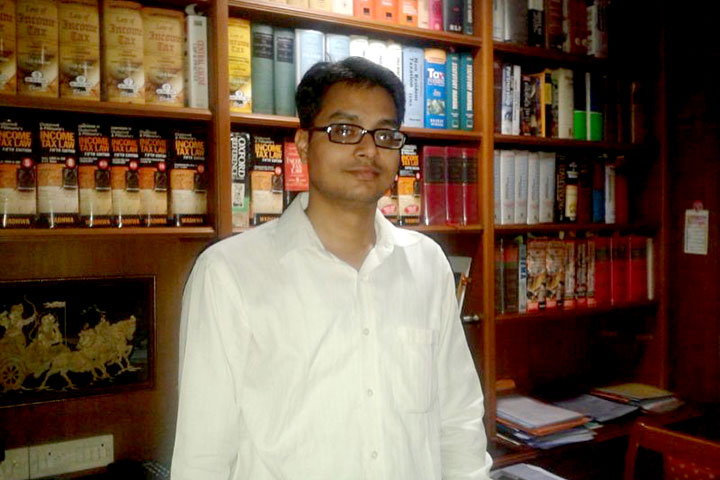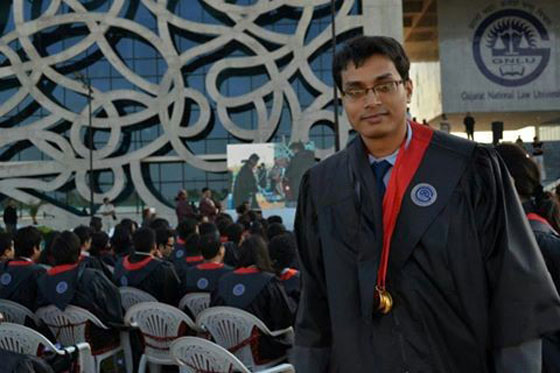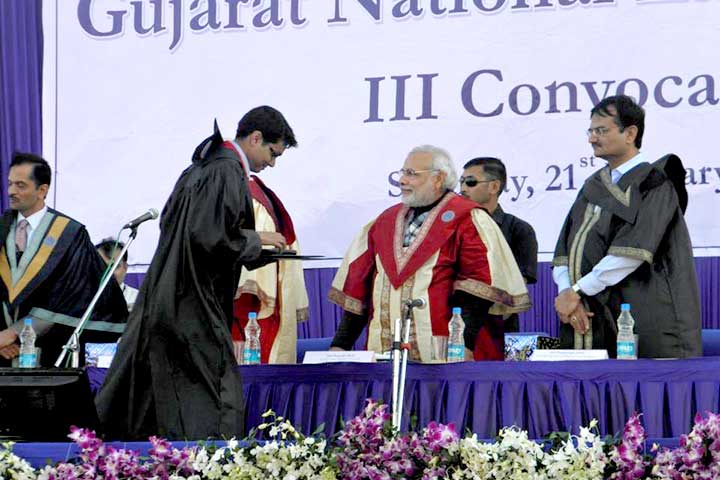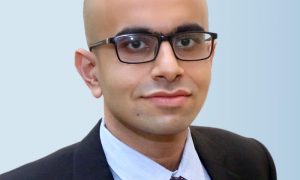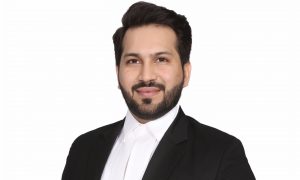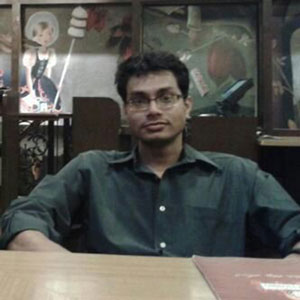 Prashant Mishra graduated from the Gujarat National Law University in 2011, after which, he spent a year working at Universal Legal. However, he decided to quit his comfortable lifestyle instead and pursue the UPSC. After two years of training, he scored the 64th rank in the All India Civil Services Examination, 2013. We have taken this opportunity to ask him about:
Prashant Mishra graduated from the Gujarat National Law University in 2011, after which, he spent a year working at Universal Legal. However, he decided to quit his comfortable lifestyle instead and pursue the UPSC. After two years of training, he scored the 64th rank in the All India Civil Services Examination, 2013. We have taken this opportunity to ask him about:
- His experience as a law student at the Gujarat National Law University.
- His time as an employee at Universal Legal.
- Circumstances that prompted him to give up his secure job and pursue the UPSC instead.
- Tips on clearing one of the toughest examinations in the country.
Tell us a bit about yourself as an introduction. Do you come from a family of lawyers?
Hi! I am Prashant. I come from a middle class family. My father is a government servant and my mother is a home maker. I did my schooling from Patna and went on to join GNLU after that. I do not come from a family of lawyers. I am the first lawyer from my family.
What got you into legal studies? How did you get through to GNLU? Was it all planned or something that just happened by chance?
It was in class tenth that I was introduced to law by my father. I did some basic internet research about law schools and decided to pursue law after the twelfth. I appeared in entrance tests for almost all law schools and got through to GNLU (3rd Rank) and HNLU (5th Rank). So, yes it was all well planned out and with quite a bit of preparation.
Please share some of the memorable experiences from your GNLU days. What made your college life exciting? What were the various activities you partook of?
I enjoyed every bit of my stay in GNLU. I partook of various moots, conferences, etc. Hostel life was real fun and the fact that we lived in a campus which was in the heart of Gandhinagar made our lives really easy as everything was accessible.
I remember our group ‘addas’ with lots of dear friends. There are so many memorable moments; it’s difficult to pick one out.
What were your major interests as a student of law? Did any specific legal subject interest you more than others?
I liked legal studies a lot. It never got me overburdened with lots of academic work. Unlike science or humanities, corporate laws, arbitration and jurisprudence were the kind of subjectsthat I knew would interest me.
You were awarded four gold medals on graduation, which is a goal for many students. Please share some tips on scoring well.
All the four gold medals which I was awarded were not a result of meticulous or competitive planning. I got those medals in the subjects that I loved to read (quite the subjects mentioned earlier).
I would suggest that students should enjoy what they read, instead of studying simply for the sake of passing; also one shouldn’t study simply with the intention of becoming the topper.
It’s important to study at one’s own pace; recognise subjects which are your favourites.
I was also lucky to have a friend who used to make wonderful notes and more importantly, share all of those notes with me before the exams.
You were also the Managing Editor of The GNLU Law Review. How was your experience as the Managing Editor of such an academic journal? What did you get to learn from this experience?
Being a part of TGLR was a wonderful experience. I had the duty of reviewing articles of my peers. I came across some extremely well written pieces which helped me to learn and emulate the art of writing.
Along with learning teamwork and multi-tasking, I also learnt how to refuse people politely.
Almost all your internships were at top-notch law firms. Were you expecting to join a law firm even as a student or did these just happen on the go?
As a matter of fact, I hardly thought about civil service during law school. I was interested in corporate laws and I was also pursuing the Company Secretary course, so that was what I expectatedto do and also, it made perfect sense for me to join a law firm. I used to plan my internships and enjoy the experiences that came along with them.
After graduating from GNLU you had worked at Universal Legal for almost a year. How did the appointment take place? How helpful do you think CGPA is when it comes to getting recruited?
I applied to UL on my own and got recruited after thorough interviews with them.
I don’t think law firms use CGPA as a benchmark anymore to select a group of prospective employees.
It is the interview and substance in the student which actually makes the difference.
How difficult would you say it is for freshers to get recruited in law firms now,given the increased number of law students graduating every year?
I do not agree with the proposition that with more number of law students graduating, there shall be an increased difficulty in finding jobs. There are plenty of opportunities for good people in the legal field.
How was your work environment at Universal Legal? Could you maintain a proper work/life balance? What prompted you to quit it in August 2012?
The work environment at UL was pretty balanced. I never missed any deadlines and the work pressure was quite sustainable and reasonable. Even as a fresher, I could directly interact with clients which helped in creating a lot of confidence in myself.
Time was still the luxury that I enjoyed the most and as compared to other law firms, it was quite different.
I decided to quit because I realised that the work was settling into a predictable pattern and that life had stopped testing my limits.
Leaving a comfort zone with a secured lifestyle to study and prepare for the UPSC must have been quite decisive on your part. What made you want to study for the UPSC?
It wasn’t about leaving a comfort zone. I never considered studying to be a difficult task, and most importantly I had all the support I needed from my parents. So, it was not that difficult to decide on studying for the UPSC.
I also never thought I would have come along this far. At the outset, the idea was to take a whole hearted attempt and give it my best. And in any case I was a lawyer, I had my legal career to bank upon.
You came to Delhi for your Civil Services preparations. Were you looking for good Civil Service Coaching institutions? Why Delhi and why not your hometown Patna?
Delhi has a lot of coaching institutes which provide professional guidance. Also, accessing study materials was never a problem for me.
In any case, after being accustomed to staying away from home for 6 years, I would not have returned to Patna.
How valuable do you think coaching institutions can be for UPSC preparation?
Some of the coaching institutes are really good. They provide you with a platform which you can quickly build on. However, it is not indispensable and with proper guidance, one can clear without taking any coaching.
You prepared for the UPSC for almost two years. What was the routine you followed everyday throughout these years?How did these two years work out for you?
I did not follow any set routine. At least that was the whole plan – to stay away from routine. Initially, I did not study much. With exams approaching, the study hours automatically increased. These two years went in a jiffy. At times you tend to get bored, you feel like your competitors are taking great strides, while you are stagnated. However, now I can say that it was all worth it.
It invariably requires huge mental strength and focus to pursue one goal single-mindedly. What is your experience preparing for the UPSC?
As has been rightly pointed out by you, the examination process is a long drawn affair and it takes minimum one year for it to get over. In retrospect, I think having a strong will-power and motivation is the key to maintain your sanity.
What did you do to keep yourself abreast of all domestic and international current affairs? How did you study for static GK?
For domestic and international current affairs I solely relied on The Hindu, and I used to religiously read it every day. The current exam pattern of UPSC has very little reliance on Static GK.
I also subscribed to Yojana, Kurukshetra and Frontline apart from my regular reading of standard text books.
Lakhs of people attempt the UPSC prelims and only a thousand get selected for the main written exam. Which are the prime skills and expertise required to crack the prelims?
Even though lakhs of people may attempt it, I think there are only 50,000 who take it seriously. Being a competitive exam, it is the relative knowledge that matters. You need to cover a vast syllabus in a limited period of time and retain and analyse a lot of information.
Could you please share your views on the questions asked in the prelims?
In the prelims, questions were asked mostly from Indian history, geography, polity, art & culture, science & tech and economics. I did not read on Science and Tech much, those you can say were difficult for me.
What kind of posts have you opted for in the UPSC enrolment form? How do you want to serve the nation?
My preferences for the civil services were:
IAS – IFS – IPS – IRS in the decreasing order.
I would like to do the kind of things that I always expected from the people who were already there. I would use my knowledge of law to play a major role in administration.
Right now, I have not planned much. I intend to assimilate as much as I can and give my best in whatever capacity I am put into.
What would be your message to law students and lawyers who aspire to become a civil servant?
Purely from an examination perspective, I think law as an optional has a lot of potential. It helps a lot in civil service. I think it is not as difficult as people project and with intelligence, diligence and hard work, it is possible to clear the so called ‘mother of all exams’.

